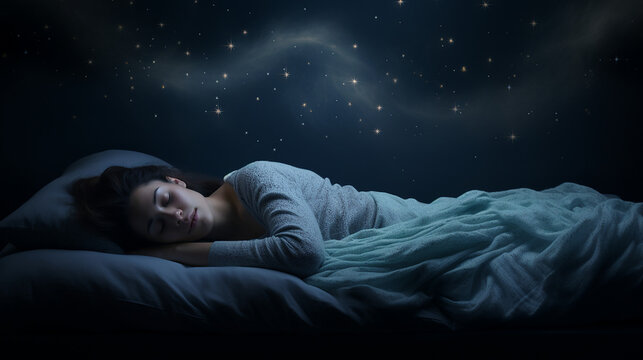Sleep is a fundamental aspect of human life, crucial for physical health, mental well-being, and cognitive function. However, not all sleep is created equal, and the timing and quality of our sleep can vary significantly from person to person. One factor that influences our sleep patterns is our biological clock, or our sleep chronotype. Understanding your chronotype can help you optimize your sleep schedule to match your body’s natural rhythms and improve overall sleep quality. In this comprehensive guide, we’ll delve into the concept of sleep chronotypes, explore the different types, and discuss how they impact sleep needs and daily functioning.
Understanding Sleep Chronotypes:
- What Are Sleep Chronotypes?
- Sleep chronotypes refer to individual differences in sleep-wake patterns based on our internal biological clocks.
- Our chronotype determines whether we are naturally inclined to be early risers (morning types), night owls (evening types), or somewhere in between.
- The Science Behind Chronotypes:
- Chronotypes are influenced by genetic factors, particularly variations in the PER3 gene.
- Our biological clock, controlled by the suprachiasmatic nucleus (SCN) in the brain, regulates the timing of physiological processes, including sleep-wake cycles.
- Environmental factors, such as light exposure and social schedules, can also influence our chronotype.
Types of Sleep Chronotypes:
- Morning Types (Larks):
- Morning types, or larks, are individuals who naturally wake up early in the morning and feel most alert and energetic during the first half of the day.
- They tend to go to bed early and have an easier time falling asleep and waking up.
- Morning types may experience a mid-afternoon energy dip but typically maintain consistent energy levels throughout the morning and early afternoon.
- Evening Types (Night Owls):
- Evening types, or night owls, prefer staying up late at night and have difficulty waking up early in the morning.
- They often experience a surge in energy and alertness during the evening and night hours, making it challenging to fall asleep before a certain time.
- Night owls may struggle with morning grogginess and find it difficult to function optimally in the early hours of the day.
- Intermediate Types (Third Birds):
- Intermediate types, sometimes referred to as third birds, fall somewhere between morning and evening types on the chronotype spectrum.
- They may have flexibility in their sleep-wake schedules and feel comfortable adjusting to different routines.
- Third birds may experience fluctuations in energy levels throughout the day, depending on their sleep patterns and external factors.
Impact of Chronotypes on Sleep Needs:
- Sleep Duration:
- Morning types typically require fewer hours of sleep compared to evening types.
- Night owls may need more sleep to feel rested and alert due to their delayed sleep phase.
- Individual variations in sleep needs exist regardless of chronotype, but understanding your natural tendencies can help determine your optimal sleep duration.
- Sleep Quality:
- Chronotype influences the quality of sleep individuals experience at different times of day.
- Morning types tend to have higher sleep efficiency and experience deeper, more restorative sleep during the first half of the night.
- Night owls may struggle with sleep onset latency and wake after sleep onset (WASO) due to their delayed circadian rhythm and increased sensitivity to light exposure in the evening.
- Circadian Rhythm Alignment:
- Aligning your sleep schedule with your chronotype can enhance circadian rhythm synchronization and promote overall well-being.
- Morning types may benefit from maintaining a consistent sleep-wake schedule that aligns with their natural tendency to wake up early.
- Night owls can optimize their sleep hygiene by minimizing exposure to artificial light at night and creating a conducive sleep environment that supports their delayed bedtime preferences.
Practical Tips for Managing Your Chronotype:
- Identify Your Chronotype:
- Take online quizzes or use validated questionnaires to determine your chronotype.
- Pay attention to your natural sleep-wake patterns and energy levels throughout the day.
- Establish Consistent Sleep Habits:
- Stick to a regular sleep schedule that aligns with your chronotype, even on weekends.
- Create a bedtime routine that signals to your body that it’s time to wind down and prepare for sleep.
- Optimize Your Sleep Environment:
- Make your bedroom conducive to sleep by minimizing noise, light, and temperature disturbances.
- Invest in a comfortable mattress and pillows that support healthy sleep posture.
- Practice Good Sleep Hygiene:
- Limit screen time and exposure to electronic devices before bedtime, as blue light can disrupt melatonin production and delay sleep onset.
- Avoid consuming caffeine and stimulating activities close to bedtime, especially if you’re an evening type.
- Seek Professional Help if Needed:
- If you’re struggling with persistent sleep issues or excessive daytime sleepiness, consider consulting a healthcare professional or sleep specialist.
- Sleep disorders such as insomnia and sleep apnea can impact individuals of all chronotypes and may require specialized treatment.
Understanding your sleep chronotype is key to optimizing your sleep-wake schedule and promoting overall sleep health. Whether you’re a morning lark, a night owl, or somewhere in between, embracing your natural tendencies and aligning your lifestyle with your biological clock can lead to more restful and rejuvenating sleep. By implementing practical strategies for managing your chronotype and prioritizing healthy sleep habits, you can unlock the full potential of your body’s innate sleep rhythms and wake up feeling refreshed and revitalized each day.
Read More: 3 Times Taylor Swift Surprised Fans with Secret Album Drops
